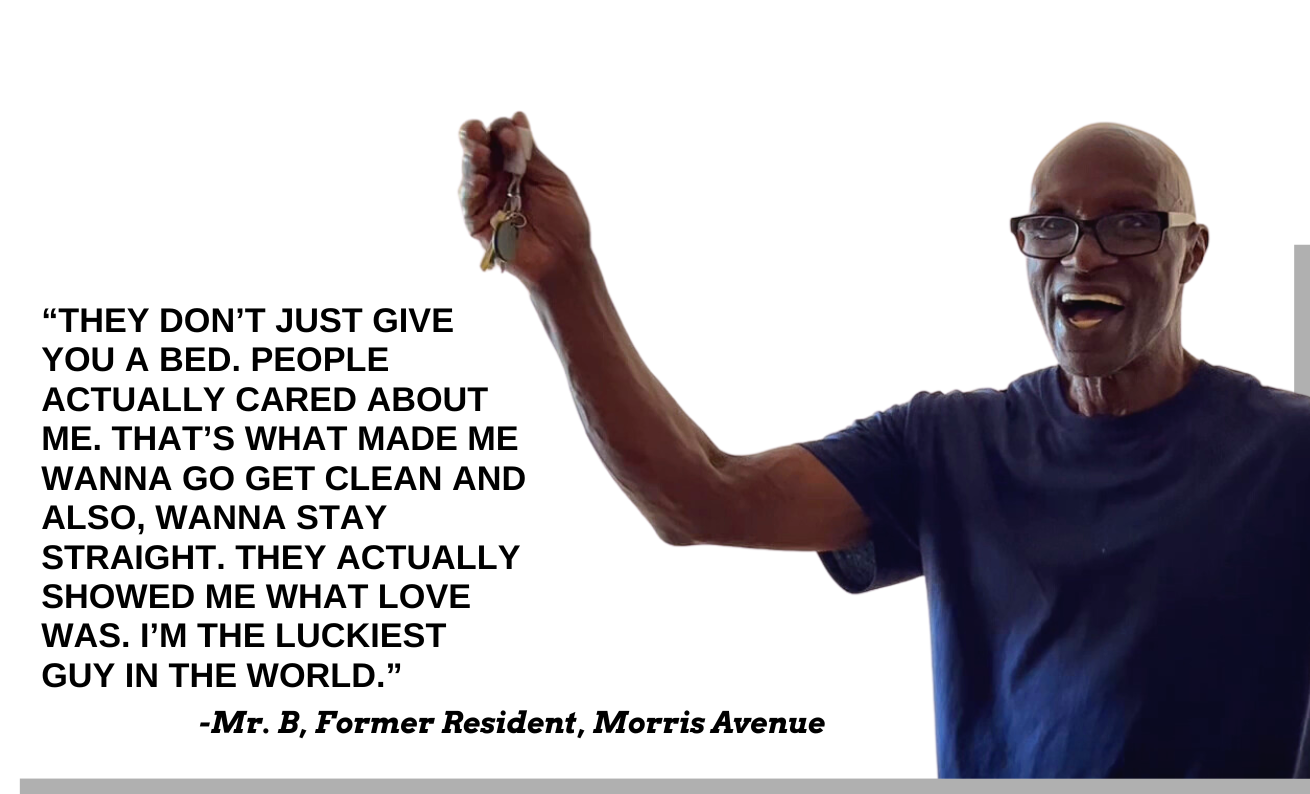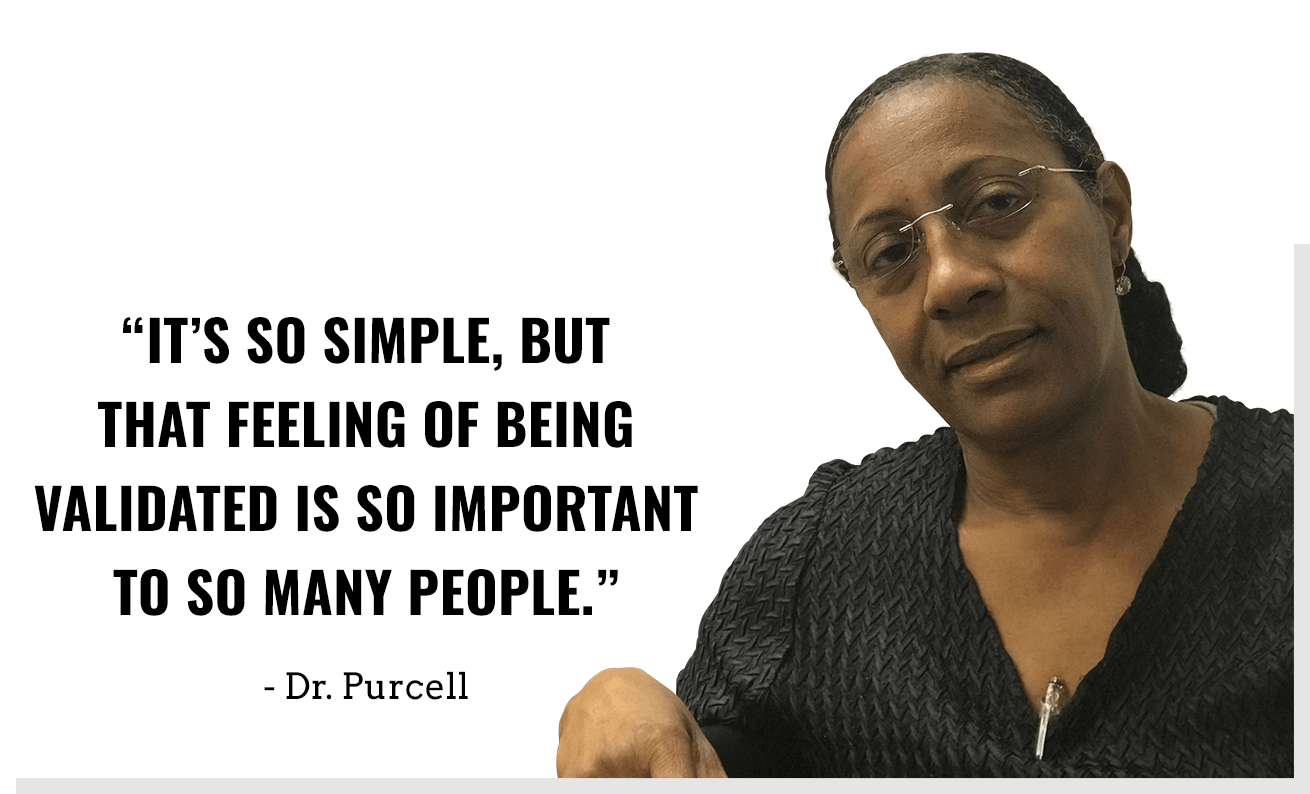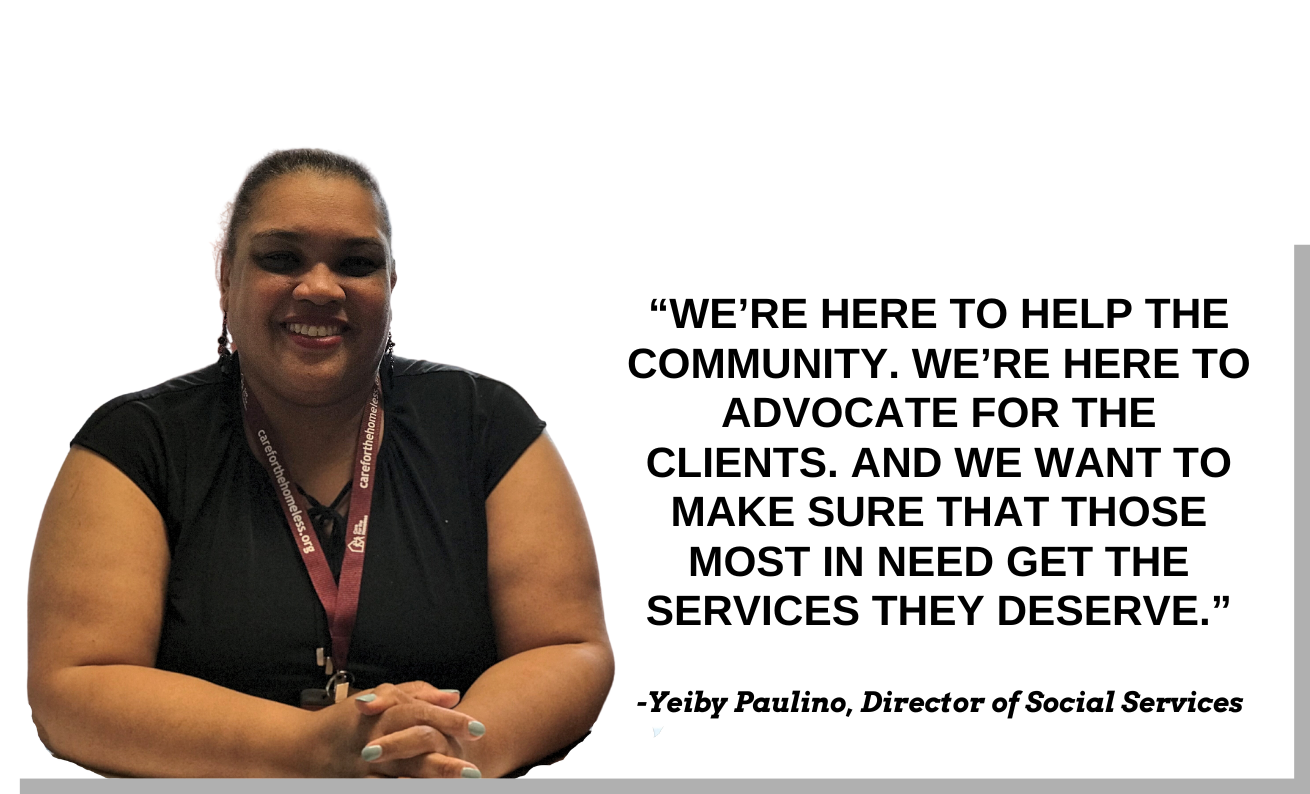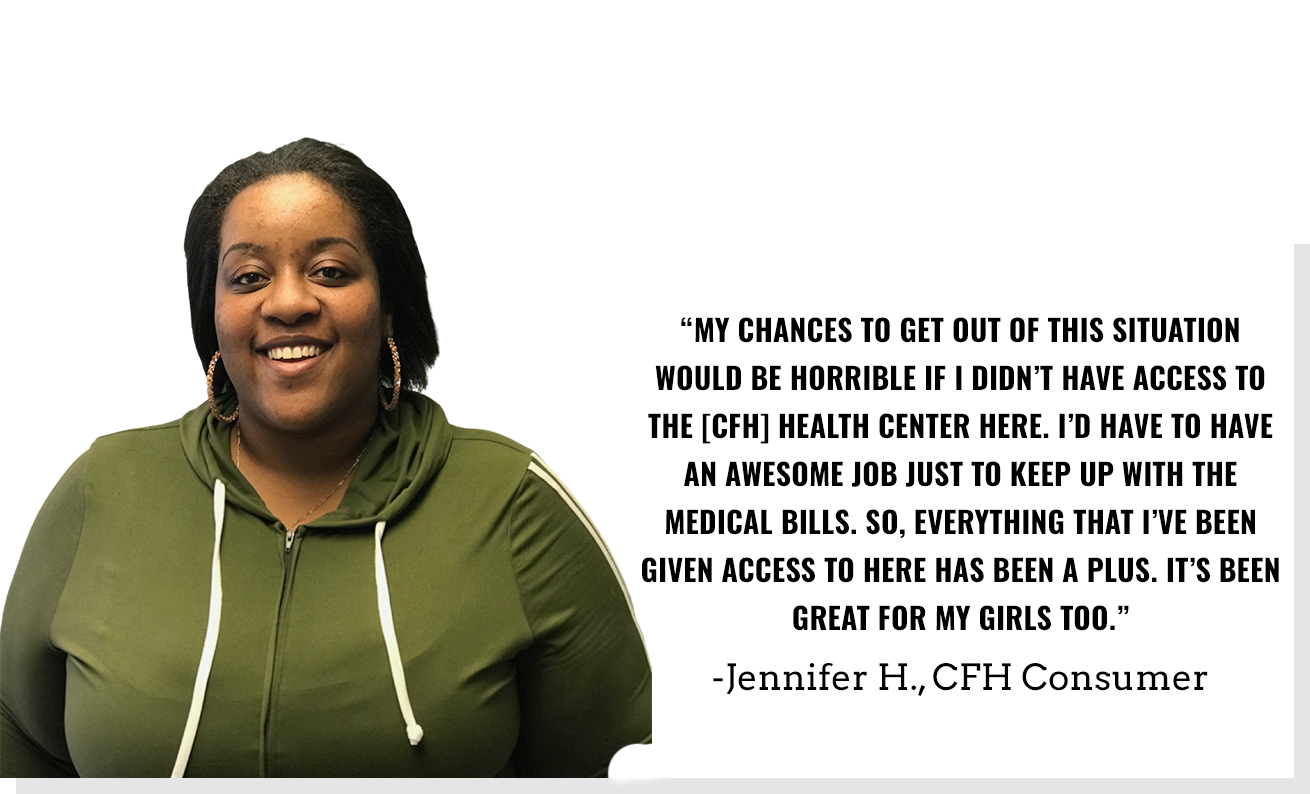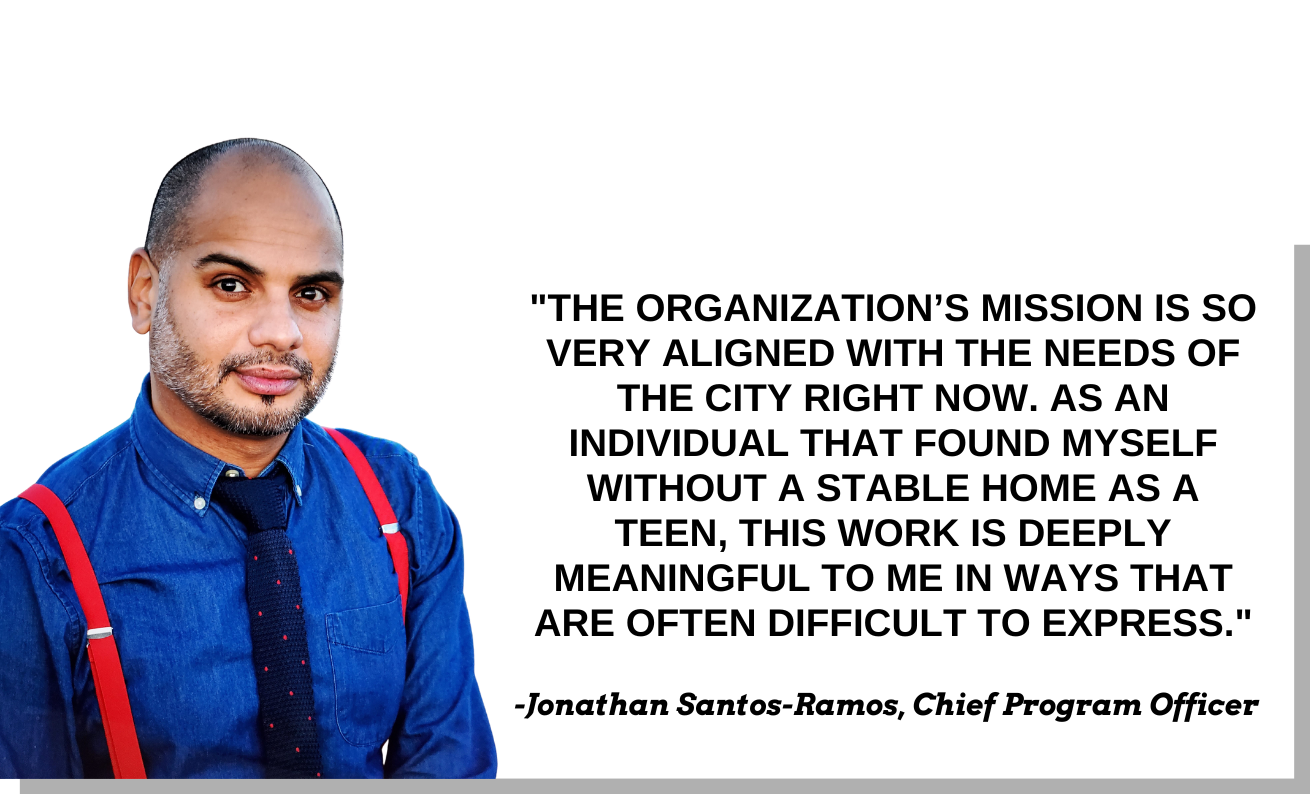Building an Ambulatory Care Network
What is an Ambulatory Care Network? And what does it mean to a person experiencing homelessness? Here’s where it begins.
What is an Ambulatory Care Network? And what does it mean to a person experiencing homelessness? Here’s where it begins.
First Contact: Two Points
Before a woman or man experiencing homelessness can enter the shelter system in New York City, she/he must first visit an Assessment Shelter. They can access these locations by entering one on their own or via a referal from an outreach worker.

Women receive services at Franklin Women’s Assessment Center in the Bronx. Men receive services at 30th Street in Manhattan. There, all individuals receive a physical and mental health assessment. The process determines her/his specific needs, so that she/he can be placed in a shelter that can manage them.*
*Women and men spend an average of 3-weeks at an assessment center before moving to a shelter.
The Co-Location Model
Care For the Homeless (CFH) operates the health center at both Franklin and 30th Street.* As providers, we are responsible for all health assessments. This is a sensitive process, as the traumas that caused these individuals to lose their housing are fresh. Building trust and cultivating respect are just as important in this context as providing excellent medical care that is accessible and compassionate.

*There are other assessment centers for women and men in New York City. However, CFH health centers are only located at these.
The Benefits of the Ambulatory Care Network
After the assessment period, the woman/man is placed in one of several single adult shelters throughout New York City. If they’re placed in a shelter operated by CFH or one in which a CFH health center is co-located, they can seamlessly continue their health care journey.*

*CFH operates two shelters for single-adult women and operates health centers in five shelters for single-adult men.
Continuity of Care

Unstable housing/shelter means that the people we serve move often between locations and boroughs. Co-locating CFH health care services in assessment centers and single adult shelters means that care is never more than a walk down the hall.
Our mission is also to provide continuity of care over a long period, delivered by a multi-disciplinary care team. To do that, we must adapt to the transitory aspect of our patients’ lives.
The ACN allows people traveling through the system to receive the same quality of care and have their health records follow them, no matter where they go. This allows people to take control of their health care. It eliminates duplicate testing services and exams, reducing health care costs.
Most importantly, it avoids the potential re-traumatization of a human being in their most vulnerable state.

A health crisis often precipitates and/or exacerbates an episode of homelessness. Properly addressing an individual’s health is one of the most essential solutions to homelessness.
The Ambulatory Care Network model that we are building and replicating across New York City will allow us to not only serve more people in need but serve them consistently, efficiently, and with compassion and respect, as they make their journey towards permanent housing.

